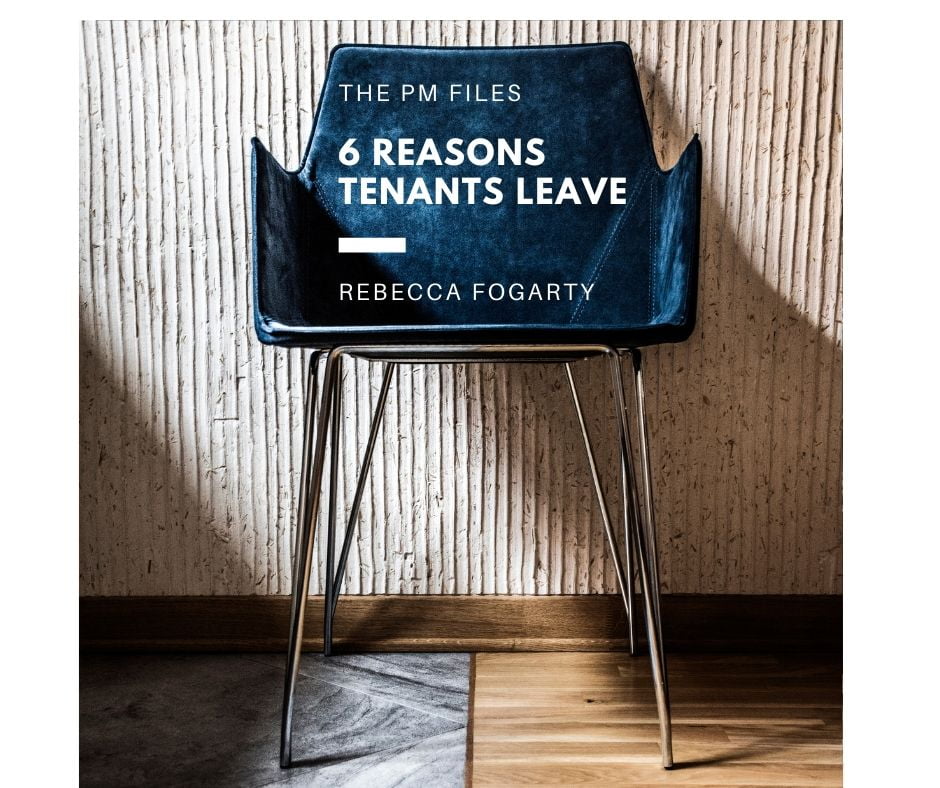6 Reasons Tenants Leave

A vacant property can and does affect not only your cash flow but your yield.
A quality property manager and a solid marketing plan can help find a tenant quickly. But often, being aware of why a tenant is leaving can save you the added costs of securing a new tenant.
These 6 issues seem to be the most common reason why tenants leave.
1. Lack of maintenance
Good quality tenants love their home and often make suggestions to improve the home. These requests may include cleaning the gutters or fixing small maintenance issues. While some requests/suggestions can be excessive, responding to the maintenance by attending or advising the tenant why it is not proceeding, keeps the tenant informed and demonstrates that they are a part of the process.
2. The Property Manager
Unfortunately, this is a little more common than expected. Many inexperienced Property Managers treat tenants unfairly, often not giving them time to address their concerns or even responding to any issues. Tenants may feel bullied or like second-class citizens and will most likely move as soon as they can if the Property Manager is the issue.
3. Rent increase
Many tenants are aware that rent can be increased by CPI. They monitor the rental market and many are conscious of the current market conditions. Increasing your tenant’s rent in a high vacancy market may prompt them to see what other properties are available.
4. Change of circumstances
The most common reason for a tenant to break their lease or not renew it is a change in their circumstances. Children grow up; marriages and partnerships breakdown and job changes, are all valid reason why a tenant may choose not to renew the lease, and is one of the issues that an owner may not be able to help or prevent.
5. Lack of features
Renting a home in winter with a fireplace seems like a great idea, but often summer comes and the tenants want to be able to cool the home down with an air conditioner or fans.
Including features such as air conditioners, dishwasher, or security screens can all be added incentives for a tenant to remain in a property.
6. Short-term leases
Many new investors are fearful of locking a tenant in a lease for more than 6 months, however, this can make a tenant uneasy as they feel they do not have a long-term secure home. Discussing lease term options with tenants is key in building a good relationship.
Communication is the key to maintaining a good relationship with your tenant. Quality tenants are worth holding onto and if there is something that can be done to ensure they remain your tenant it may be worthwhile. After all, a tenant is an integral part of successful property investment. Do not let yours get away if they are worth holding onto.

